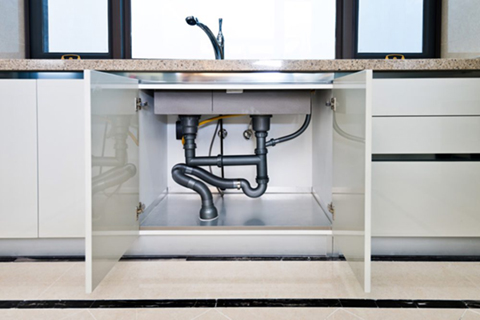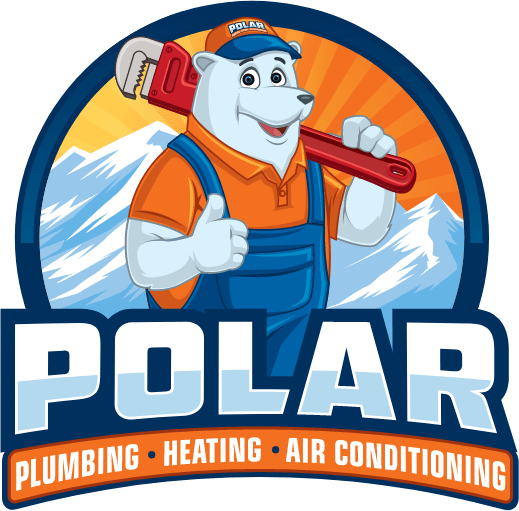When faults start to develop, you may hear unusual sounds. The noises can enable you to locate the source of the plumbing problem. Here are some of the noises and what they mean.

Clanking and Rattling Pipes
When troubleshooting your plumbing, sometimes the problem is a simple fault within the system. Rattling and clanking usually indicate there is an issue with the connections. Loose plumbing connections will shake, making rattling noises as water passes through them.
The loose pipe connections can result from a flawed installation process. The piping can also weaken and get worse if not addressed on time. As water moves through your plumbing, the elbows or couplings may allow water to seep out.
You can locate the loose fasteners by following the sound. If the piping is exposed, tightening will often fix it. However, the connection could be behind a wall or underground. In such cases, it is best to seek the assistance of a professional plumber.
Sound of Vibrating Pipes
However, copper and PVC can develop problems after installation makes noises. PVC is low cost, resistant to rust, and easy to install. Unfortunately, you cannot use the plastic piping with hot water because it will warp.
PVC pipes can produce cracking noises when they expand and contract. Hot water forces the piping to increase in size. When hot water stops flowing, the temperatures drop, and the piping shrinks. When you hear a cracking sound, it is most probably the pipe shrinking.

Copper is also prone to thermal expansion and contraction. Fortunately, copper is malleable and can handle the stress of heat. However, it can make noises when rubbing against the fasteners and connections.
If you only hear the noise after using hot water, the issue is most probably expanding pipes. You can use soundproofing wrapping if the noise is unbearable. We recommend hiring Polar Plumbing, Heating & Air Conditioning’s plumbers for an assessment of your plumbing in Newburgh.
Loud, Thumping Noise
Your plumbing system has valves to control high-pressure shockwaves that can damage your pipes. The pressure surge forces water to change direction abruptly. The phenomenon is known as a water hammer. A water hammer is characterized by a banging or thumping noise in your plumbing.
You’ll often notice the noise when you shut off a faucet, pump, or appliance. When you turn off the fixture, the valve closes, forcing water to flow in the opposite direction. Since the fluid is incompressible, it generates hydraulic surges that raise pressures in the pipes.
The water hammer phenomenon can raise the pressure to 10 times the usual level. As a result, your system experiences a lot of stress that may damage appliances and fixtures. It can degrade pumps and valves and weaken critical plumbing connections.
The pressure can build up to the extent that the pipe ruptures. On the other hand, the pipe could be leaking gradually by weakening joints and fasteners. Eventually, the flooding will cause damage to parts of your property or damage your appliances.
It is possible to fix a water hammer problem by letting water drain out. Start by turning off the supply of water to the building. Open the faucets, starting with the upper floor. The process will eliminate air, but the chamber will retain air to prevent water hammers.
If the issue persists, you may consider other options. A spring-loaded valve can act as a shock absorber to prevent pressure buildup within your plumbing. You can consult Polar Plumbing, Heating & Air Conditioning’s plumbers in Newburgh for more insights on dealing with chronic water pressure problems.
Contact one of Polar Plumbing, Heating & Air Conditioning‘s plumbing professionals now!
Popping and Rattling Sounds
If your water supply has significant quantities of minerals, it can cause damage to parts of your plumbing. Minerals like calcium and magnesium can accumulate and circulate through the pipes. You may hear a low rattling as the sludge rubs against the interior walls of the piping.
Sediments may cause your showerhead to produce whistling or hissing sounds. Deposits of minerals obstruct the flow of water, creating hissing noises. Grease and other debris may also lodge on parts of the water fixture.When you hear popping sounds from the water heater when you turn it on, it is most probably an issue with sediment buildup. Minerals can accumulate at a fast rate because of the effect of hot water. The noise is from water trying to force its way past the scale buildup.
If the water heater has sediment buildup, flushing is one of the recommended solutions. You can solve a hard water problem by acquiring water filtration systems to remove minerals.
Filtration technologies like reverse osmosis are energy-efficient and can provide water on demand. Softening the water makes it easier to perform chores since soap lathers easily. The taste of the water will also improve. Polar Plumbing, Heating & Air Conditioning can provide filtration solutions suitable for your Newburgh home.
Gurgling and Whistling Sounds
You may hear gurgling in the pipes when there is an obstacle blocking the flow of water. Scale buildup in your plumbing is one possible cause of the obstruction.
Gurgling may also occur in your drain from partial clogging. Items you flush down the toilet are often the culprits for drain clogs. A professional drain cleaning process is the most suitable method of eliminating debris and blockages.
Valves on water fixtures can also produce high-pitched noises when there is a sharp increase in water pressure. According to the New York State Department of Health, the ideal pressure should be between 60 and 80 psi.
High pressure can damage critical appliances such as the washing machine and dishwasher. Valves and fixtures deteriorate faster, causing leaks and water damage problems.
A plumber can install a pressure regulator if the pressure is above 80 psi. If the municipal supply is irregular, the device can prevent damage when the pressure spikes.
Additionally, most fixtures have a rating of 50 psi. In some areas, the pressure can exceed 100 psi. Faucets and plumbing connections will quickly succumb when subjected to double the usual level.
How to Prevent Plumbing Problems
Strange noises often point to chronic problems within your plumbing. Maintenance tasks like flushing the water tank and cleaning the drain are essential for durability. By scheduling a plumbing inspection, you can discover issues that would be expensive to fix later.
If the faucet is dripping, fixing it on time can prevent water damage and unnecessary expenses. Even a trickle from the fixture can waste thousands of gallons per year. By repairing the fixture promptly, you can reduce incidences of flooding and manage your rising utility bills.
